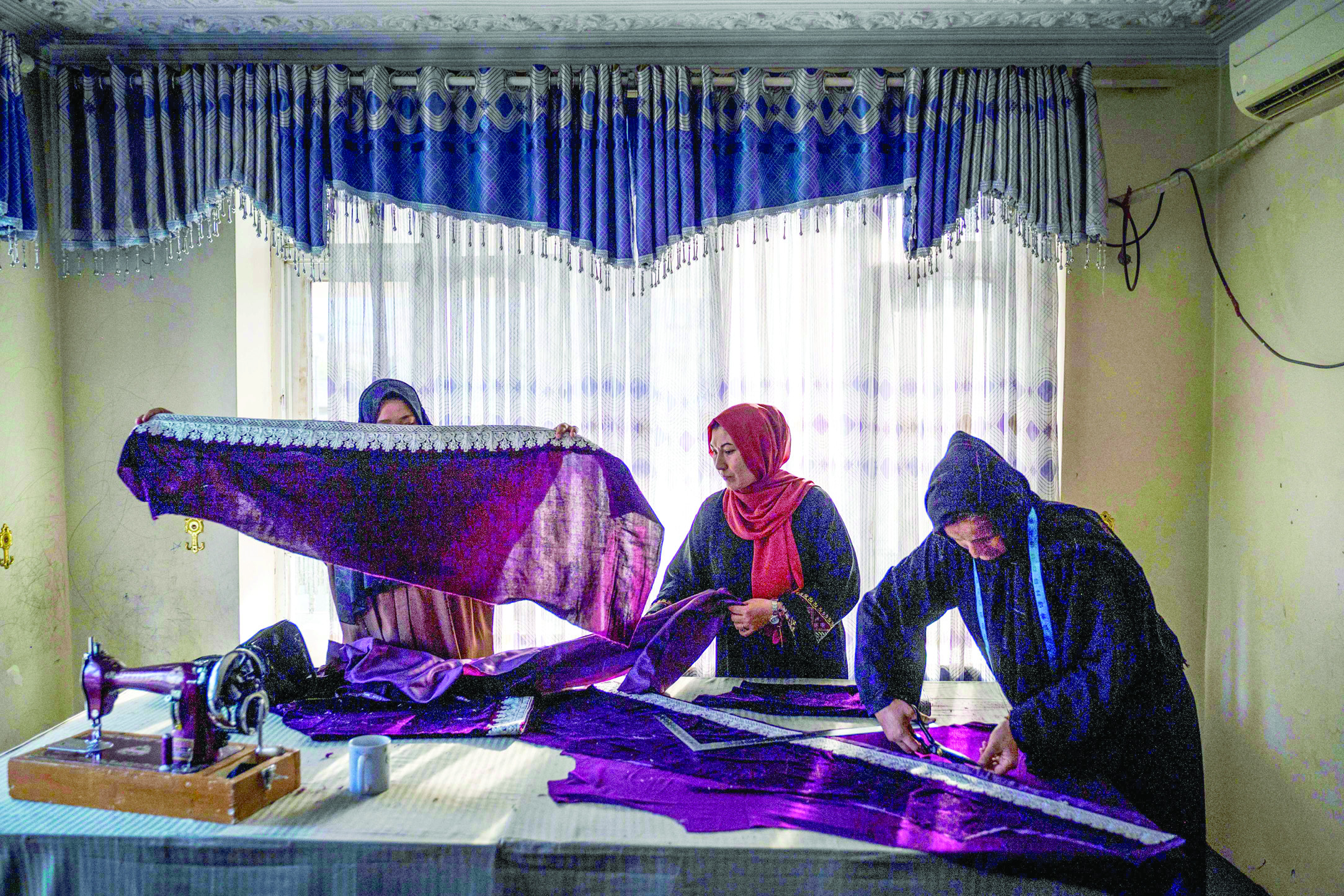
When Zainab Ferozi saw Afghan women struggling to feed their families after Taliban authorities took power, she took matters into her own hands and poured her savings into starting a business.
Two-and-a-half years after putting 20,000 Afghanis ($300) earned from teaching sewing classes into a carpet weaving enterprise, she now employs around a dozen women who lost their jobs or who had to abandon their education due to Taliban government rules.
Through her business in the western province of Herat, the 39-year-old also "covers all the household expenses" of her family of six, she told AFP from her office where samples of brightly coloured and exquisitely woven rugs and bags are displayed.
Her husband, a labourer, cannot find work in one of the poorest countries in the world.
Ferozi is one of many women who have launched small businesses in the past three years to meet their own needs and support other Afghan women, whose employment sharply declined after the Taliban took power in 2021.
Touba Zahid, a 28-year-old mother-of-one, started making jams and pickles in the small basement of her home in the capital Kabul after she was forced to stop her university education.
"I came into the world of business... to create job opportunities for women so they can have an income that at least covers their immediate needs," Zahid said.
Half a dozen of her employees, wearing long white coats, were busy jarring jams and pickles labelled "Mom's delicious homecooking".
While women may be making the stock, running the shops in Afghanistan remains mostly a man's job.
The number of businesses registered with AWCCI has increased since the Taliban takeover, said Fariba Noori, chairwoman of the Afghanistan Women's Chamber of Commerce and Industry (AWCCI).
The number went "from 600 big companies to 10,000" mainly small, home-based businesses and a few bigger companies, said Noori, herself a businesswoman for 12 years.
Khadija Mohammadi, who launched her eponymous brand in 2022 after she lost her private school teaching job, now employs more than 200 women sewing dresses and weaving carpets.
"I am proud of every woman who is giving a hand to another woman to help her become independent," said the 26-year-old.
Though businesses like Mohammadi's are a lifeline, the salaries ranging from 5,000 to 13,000 Afghanis, cannot cover all costs and many women are still stalked by economic hardship.
Zohra Gonish decided to open a restaurant to create a women-only space in northeastern Badakhshan province.
"Women can come here and relax," said the 20-year-old entrepreneur.
"We wanted the staff to be women so that the women customers can feel comfortable here."
But starting her business in 2022, aged 18 was not easy in a country where the labour force participation for women is 10 times lower than the world average, according to the World Bank. It took Gonish a week to convince her father to support her.
Aside from helping their families and having space to socialise, some women said work has given them a sense of purpose.
Sumaya Ahmadi, 15, joined Ferozi's carpet company to help her parents after she had to leave school and became "very depressed".
"(Now) I'm very happy and I no longer have any mental health problems. I'm happier and I feel better."




1732503274-0/Untitled-design-(43)1732503274-0-165x106.webp)
1732501636-0/Untitled-design-(42)1732501636-0-165x106.webp)












COMMENTS
Comments are moderated and generally will be posted if they are on-topic and not abusive.
For more information, please see our Comments FAQ